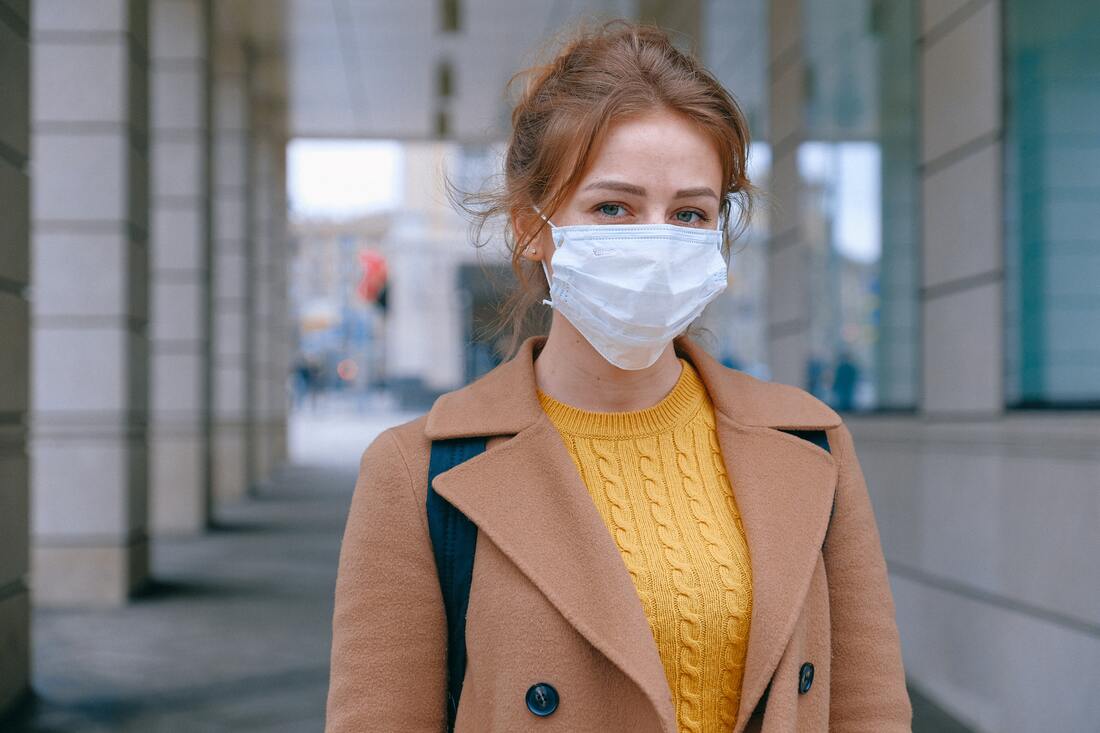|
You cannot escape it, every time you turn on the news or look at your social media feed there it is: more news about COVID-19. Maybe you started feeling a bit less anxious about the pandemic, but now it appears that cases are skyrocketing again. and that anxiety is setting in even more now. First of all, know that you are not alone and that it is completely ok to feel anxious! The American Psychiatric Association recently released a poll indicating that "nearly four in ten Americans (40%) are anxious about becoming seriously ill or dying from coronavirus, but far more Americans (62%) are anxious about the possibility of family and loved ones getting coronavirus." This is an unprecedented time and there is a lot of unknown when it comes to COVID-19, so it is to be expected that you will feel some anxiety as a result. After all, we are likely living during a once in a lifetime event! In this article, we will cover some techniques that you can use to cope with and manage how you are feeling. 1. Limit media including the news and social media
We live in the information age where information is constantly bombarding us whether we want to digest it or not. Limiting your access to this media is especially important if you struggled with anxiety and worry prior to the start of the pandemic. A good tip is to schedule the amount of time you are spending consuming media for the day or the week. Regularly check in with yourself after media consumption, compare how you felt prior to reading or watching to how you feel afterwards. If you experience an increase in anxiety, reevaluate your schedule and try exposing yourself to less media going forward. 2. Focus on what you can control Let's face it, there is not much that you can control when it comes to COVID-19, which can send your anxiety into a tail spin. A good technique to use is to focus on what you can control instead often times action can feel like an antidote to anxiety. This includes following the Center for Disease Control (CDC) guidelines available here. These guidelines include washing your hands often for 20 seconds, social distancing with 6 feet or more between yourself and others who are not in your household, among other recommendations. Read the CDC guidelines link for more information. 3. Stay connected Social distancing should really be called physical distancing. Now it is more important than ever to maintain close social relationships even if you cannot see each other face to face. Take advantage of technology to maintain friendships and connect with those you care about most. Here are some ideas on how to maintain social relationships despite the coronavirus:
4. Start a regular mindfulness meditation practice Mindfulness meditation is a good place to start as it does not require a teacher and can be practiced alone. There are several YouTube videos that you can use for free to try such as the ones listed below:If a low tech option is more your speed, there are also mindfulness meditation scripts, such as those listed below: 5. Take a mindful walk around your neighborhood Mindfulness does not just have to include sitting still and breathing deep, take your mindfulness practice on the go with a mindful walk around your neighborhood! Leave your earbuds at home and lace up your comfy shoes. As you walk, utilize all five senses to keep yourself in the here and now. Observe 2-3 things per sense.
6. Start a gratitude journal Begin keeping a gratitude journal once or twice a week. Such a journal can serve as a good reminder that there are still things to be grateful despite COVID-19. Not all gratitude journals are created equal, in order for yours to make the most impact, check out these tips on how to keep a gratitude journal. When is it time for professional help? Feeling anxious during the coronavirus is completely normal, even after you started feeling a bit better. Be patient with yourself and try some of the above techniques to manage your anxiety. If you are not improving, it is probably time to talk to a trained professional to process your anxiety. You do not have to suffer alone. If you live in the State of Texas and are interested in video counseling, Seeds of Change Counseling would be happy to help, call us for a free phone consultation to see if we are a fit at 512-676-5813.
0 Comments
Parents across the country have seen their teen's lives impacted and you see this in your home. Your teen was incredibly excited about their prom, graduation, sports season, or even just hanging out with friends. The pandemic came and disrupted everything, your teen is acting differently than before and you are concerned. In this article we will explore how to check-in with your teen during this time and when to know that it is time for help. How to talk with your teen about how they are feeling Many teens can often be resistant about talking about how they are feeling. Here are some tips when engaging with them.
When should you get help for your teen? First and foremost, any discussion of suicide should be taken seriously. When this happens, you can visit your local ER to get your teen the help that they need. Here are some symptoms that can warrant a visit to your doctor or a therapist. It is important to note that every adolescent can exhibit some of these symptoms from time to time. However, noticing a marked increase in these behaviors in a short period of time could be a signal for additional help.
If you need additional help for your teen and live in the State of Texas, we currently offer video counseling during the coronavirus. Please call us at 512-676-5813 for a free phone consultation to see how we can best support you. |
Archives
September 2020
Categories
All
|


